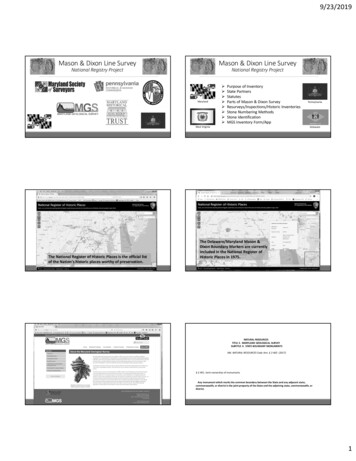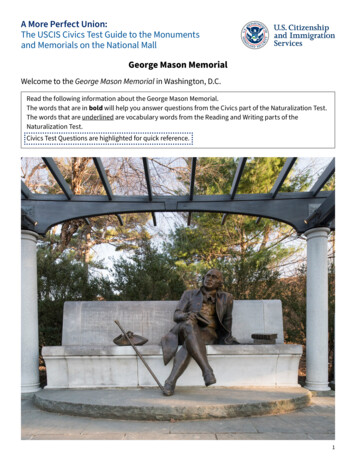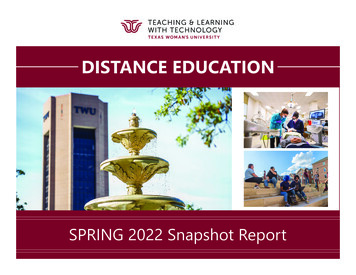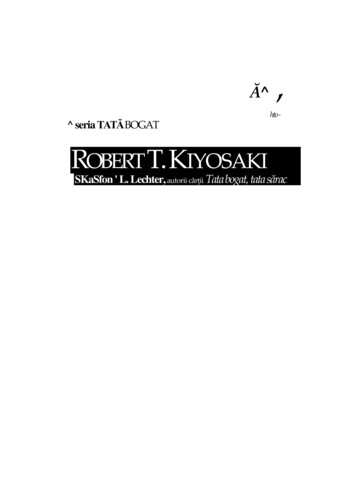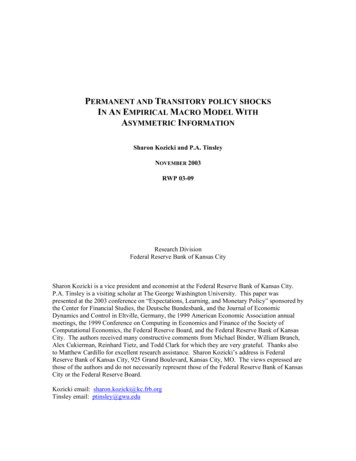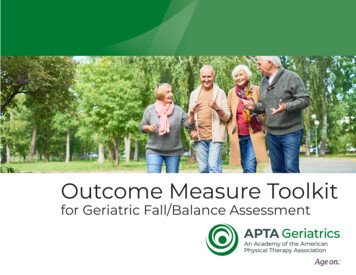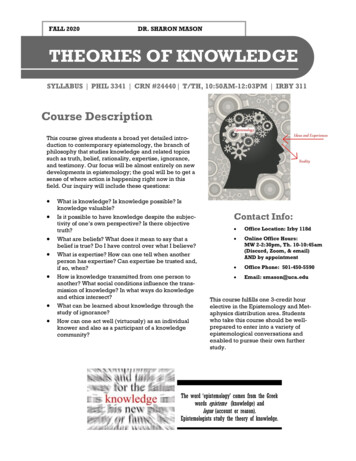
Transcription
FALL 2020DR. SHARON MASONTHEORIES OF KNOWLEDGESYLLABUS PHIL 3341 CRN #24440 T/TH, 10:50AM-12:03PM IRBY 311Course DescriptionThis course gives students a broad yet detailed introduction to contemporary epistemology, the branch ofphilosophy that studies knowledge and related topicssuch as truth, belief, rationality, expertise, ignorance,and testimony. Our focus will be almost entirely on newdevelopments in epistemology; the goal will be to get asense of where action is happening right now in thisfield. Our inquiry will include these questions: What is knowledge? Is knowledge possible? Isknowledge valuable? Is it possible to have knowledge despite the subjectivity of one’s own perspective? Is there objectivetruth?Contact Info: Office Location: Irby 118dWhat are beliefs? What does it mean to say that abelief is true? Do I have control over what I believe?What is expertise? How can one tell when anotherperson has expertise? Can expertise be trusted and,if so, when? Online Office Hours:MW 2-2:30pm, Th. 10-10:45am(Discord, Zoom, & email)AND by appointment Office Phone: 501-450-5590 How is knowledge transmitted from one person toanother? What social conditions influence the transmission of knowledge? In what ways do knowledgeand ethics intersect? Email: smason@uca.edu What can be learned about knowledge through thestudy of ignorance? How can one act well (virtuously) as an individualknower and also as a participant of a knowledgecommunity? This course fulfills one 3-credit hourelective in the Epistemology and Metaphysics distribution area. Studentswho take this course should be wellprepared to enter into a variety ofepistemological conversations andenabled to pursue their own furtherstudy.The word ‘epistemology’ comes from the Greekwords episteme (knowledge) andlogos (account or reason).Epistemologists study the theory of knowledge.
THEORIES OF KNOWLEDGEPage 2Course Texts Blackburn, Simon. On Truth. Oxford University Press, 2018. Medina, José. The Epistemology of Resistance: Gender and Racial Oppression, Epistemic Injustice, and Resistant Imaginations. Oxford University Press, 2013. Additional course readings will be available on Blackboard in the Online Classroom under “Required Readings.”Fricker, Miranda. Epistemic Injustice: Power & the Ethics of Knowing. Oxford University Press, 2007.Grading SchemeParticipation & Learning Cohorts280 points (20 each week)Short Essays (2)120 (60/60) pointsTerm Paper & Online Conference150 pointsActive Participation (280 points)In an ordinary semester, I would have an attendance policy with a limit for how many classes you can miss without receiving a grade reduction because students who attend class regularly and participate actively will learn more thanthose who do not. However, this is not an ordinary semester.As a result, my attendance policy will be as follows: I am going to assume that you are interested in this subject matter and that your goal is to learn. This assumption iswell-supported by the fact that a) this is an elective class, and b) being here is costing you something (time, money,opportunity cost, etc.) I have done my best to prepare content for you that is important, relevant, accessible, and,quite frankly, that I hope will blow your mind. I think you will miss out if you don’t attend. I will be tracking attendance in order to comply with UCA guidelines and to have data for contact tracing, financialaid, etc. In case a student needs to quarantine or cannot attend in person, participation points may be earned bybeing present onsite in class, attending a virtual class. If you stop actively participating in the course (defined as: no attendance, no assignment submissions, nocontact for 1 week), I will send you an email to see if you need support. You will have one week to respond.If you do not respond (2 weeks no contact), I will administratively withdraw you from the course for nonattendance.Active participation is an essential part of the course. Each class day’s content provides the opportunity for you to earnup to 10 participation points. These points will be allocated for: Actively participating in small group and large group discussions (in class/virtual, or equivalent online)Contributing to your group’s notes and assignments on Google DocsAsking and answering good questionsUsing Perusall (when applicable) for active reading, annotations, and conversations.Your attendance/participation score is the result of your total involvement in the course. If you cannot attend class forsome reason (say, because you are sick), but you contact me as soon as possible, participate in online activities, andcomplete the required assignments, then this will count as your active participation for that week. Unless an extensionhas been given, all material should be completed during the week it is assigned. It is important to let me know rightaway if there is a problem so that we can solve it together.
FALL 2020Page 3Classroom Culture StatementThis course will involve thinking deeply about controversial issues and you should expect to encounter viewpoints that challenge your own beliefs. I encourage you to view these challenges as opportunities to learnabout perspectives that may differ widely from your own and to practice the skill of interacting respectfully andsympathetically with someone, despite the fact that you may strongly disagree with their point of view. Although debate and critical analysis are encouraged, discrimination against any members of this classroom community based on gender, ethnic origin, sexual orientation, disability, or religion is absolutely unacceptable.Everyone is welcome here.Essays (120 points)These two sets of short essays will ask you to reflect and take a position on content from the course. They arenot research papers, but will be more like essay exams. Prompts will be provided at least one week beforethe due date, and should be uploaded to Blackboard.Term Paper and Online Symposium (150 points)Your essay provides the opportunity for you to do in-depth research on one of the course topics.Expect your paper to undergo several rounds of revision, including peer reviews, an online conferencepresentation, and additional feedback from your instructor. Points will be divided in the following way: 10 points: on-time proposal 20 points: presentation at Theories of Knowledge Online Symposium 20 points: 2 peer reviews @ 10 points each 100 points: final draftAll essays should be typed, 11 or 12 point font (Arial, Calibri, or Times New Roman), 1-inch margins. Youshould use APA, MLA, or Chicago for citations. All essays must be submitted electronically on Blackboard(email and hard copy will not be accepted). Further instructions are available on Blackboard.Late Work PolicyIt is helpful to have strict deadlines for assignments so that everyone can plan accordingly. I have provided due dates in the courseschedule. Please note them carefully.However, flexibility is also important. I am generally willing to giveextensions to a deadline if there is some reason you need one.Note, however, that in order to be eligible for an exemption it isyour responsibility to notify me right away, in advance of thedeadline if possible. If you do not promptly contact me to arrangean extension, late work will receive one letter-grade reduction perday late up to 5 calendar days after the assignment is due.
SYLLABUS, FALL 2020Page 4Course ScheduleThe instructor may modify the schedule as necessary. All modifications will be announced on Blackboard.(BB) available for download on Blackboard under Course Resources, Supplementary ReadingsR, 8/20: Course introduction, syllabus review, opening discussionT, 8/25: Blackburn, On Truth, Introduction and Ch.1-3R, 8/27: Blackburn, On Truth, Ch. 4-6T, 9/1: Blackburn, On Truth, Ch. 7-8R, 9/3: Blackburn, On Truth, Ch. 9 & excerpt from Mercier & Sperber, The Enigma of ReasonT, 9/8: Blackburn, On Truth, Ch.10-11R, 9/10: Nguyen, “Epistemic Bubbles and Echo Chambers” (BB)T, 9/15: Nichols, The Death of Expertise, Intro & Ch. 1 (BB)R, 9/17: Zagzebski, "What is Knowledge?" (BB) AND Gettier, "Is Justified True Belief Knowledge?" (BB)T, 9/22: Williams, "Skepticism" (BB) - Focus on Sections 1-5 FIRST ESSAY DUER, 9/24: Ungar, "Ignorance as an under-identified social problem" (BB)T, 9/29: Sullivan, "White Ignorance and Colonial Oppression: Or, Why I Know So Little about PuertoRico" (BB)R, 10/1: Medina, “Ignorance and Racial Insensitivity” (BB)T, 10/6: Alcoff, "How is Epistemology Political" (BB)R, 10/8: Fricker, Epistemic Injustice, Intro and Chapter 1, “Testimonial Injustice”T, 10/13: Fricker, Epistemic Injustice, Chapter 2, “Prejudice in the Credibility Economy”R, 10/15: Fricker, Epistemic Injustice, Chapter 3, “Towards a Virtue Epistemological Account of Testimony” (BB) AND Robertson, Testimonial Virtue (BB)T, 10/20: Fricker, Epistemic Injustice, Chapter 7, Hermeneutical Injustice (BB)R, 10/22: Dotson, “Tracking Epistemic Violence, Tracking Practices of Silencing” (BB)T, 10/27: Abramson, Turning Up the Lights on Gaslighting (BB)R, 10/29: Jaggar, "Love and Knowledge: Emotion in Feminist Epistemology" (BB) SECOND ESSAY DUET, 11/3: Medina, The Epistemology of Resistance, Foreward, Introduction, and Chapter 1R, 11/5: Medina, The Epistemology of Resistance, Chapter 2T, 11/10: Medina, The Epistemology of Resistance, Chapter 3R, 11/12: Medina, The Epistemology of Resistance, Chapter 4T, 11/17: Medina, The Epistemology of Resistance, Chapter 5R, 11/19: Medina, The Epistemology of Resistance, Chapter 6 PAPER PROPOSALS DUET, 11/24 & R, 11/26: Thanksgiving Break; Course Transitions to OnlineT, 12/1: Online Symposium, Day 1: ROUGH DRAFTS DUE FOR PRESENTERSR, 12/3: Online Symposium, Day 2: ROUGH DRAFTS DUE FOR PRESENTERSR, 12/10: FINAL PAPERS DUE ON BLACKBOARD (no class meeting)
FALL 2020Page 5Important InformationPlease read the following information carefully. These notifications are required by the UCA administration to appear on allUCA course syllabi. Face Coverings Statement: All students are expected to comply with the University policyregarding face coverings (see https://uca.edu/coronavirus/students/). Academic Integrity Statement:The University of Central Arkansas affirms its commitment to academic integrity and expects all members of the university community to accept shared responsibility for maintaining academic integrity. Students in this course are subject to the provisions of the university’s Academic Integrity Policy, approved by the Board of Trustees as Board Policy No. 709on February 10, 2010, and published in the Student Handbook. Penalties for academic misconduct in this course may include a failing grade on an assignment, a failing grade in thecourse, or any other course-related sanction the instructor determines to be appropriate.Continued enrollment in this course affirms a student’s acceptance of this university policy. Americans with Disabilities Act:The University of Central Arkansas adheres to the requirements of the Americans with Disabilities Act. If you need an accommodation under this Act due to a disability, please contactthe UCA Disability Resource Center, 450-3613. Building Emergency Plan:An Emergency Procedures Summary (EPS) for the building in which this class is held willbe discussed during the first week of this course. EPS documents for most buildings oncampus are available at http://uca.edu/mysafety/bep/. Every student should be familiarwith emergency procedures for any campus building in which he/she spends time for classes or other purposes. Title IX Disclosure:If a student discloses an act of sexual harassment, discrimination, assault, or other sexualmisconduct to a faculty member (as it relates to “student-on-student” or “employee-onstudent”), the faculty member cannot maintain complete confidentiality and is required toreport the act and may be required to reveal the names of the parties involved. Any allegations made by a student may or may not trigger an investigation. Each situation differs, andthe obligation to conduct an investigation will depend on the specific set of circumstances.The determination to conduct an investigation will be made by the Title IX Coordinator. Forfurther information, please visit: https://uca.edu/titleix. *Disclosure of sexual misconductby a third party who is not a student and/or employee is also required if the misconduct occurs when the third party is a participant in a university-sponsored program, event, or activity. Student Handbook:Students are strongly encouraged to familiarize themselves with all policies in the StudentHandbook, especially the Academic Policies and the Sexual Harassment Policy.
FALL 2018 DR. SHARON MASON THEORIES OF KNOWLEDGE Contact Info: Office Location: Irby 118c Office Hours: Book me at smason-uca.youcanbook.me Office Phone: 501-450-5590 Email: smason@uca.edu The word 'epistemology' comes from the Greek words episteme (knowledge) and logos (account or reason).
